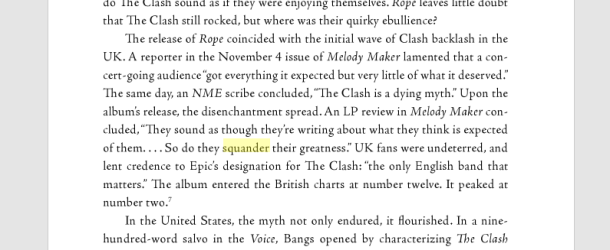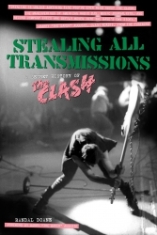Freud was right: the narcissism of small differences permeates nearly all of human history, and our ability to find those small differences (musical taste, of course), and to magnify the something into everything (see Nick Hornby’s *High Fidelity*), is something we’re all familiar with. This tendency typically prevents a real dialogue, and so the person who draws these boundaries (“I am here in the righteous zone, and you are over there in the suck zone”) rarely gets properly schooled on the complexity of motives–including the profit motive–that inform, say, not releasing The Clash (1977) in the U.S. in its original form.
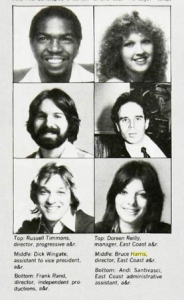
Luckily, Paul Doughtery, @ https://punkbeforepunk.wordpress.com/about/, put pen to paper to let Bruce Harris, director of A&R on the east coast for Epic, to impugn his character and rail against “the man” for his bean-counter mentality.
Astonishingly, Bruce (RIP — taken from us much too early) wrote back. The full letter is here and here.
Harris affirms the most basic duty of a record guy (make, rather than lose, money), his affinity for The Vibrators, The Adverts, and Blondie, and rightly dismisses the organizing principle of Paul’s original letter, that the LP would change the complexion of the American marketplace.
In November 1977, Bruce knew what we would know a bit later, as I describe on p. 62 of Stealing All Transmissions:
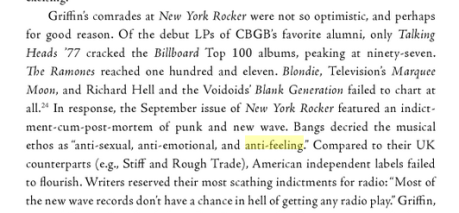
The success of The Clash (UK) as an import–allegedly the best-selling import of the time, according to Robert Christgau (and not cross-verified anywhere)–does not contradict Harris’ claim. It supports it, since the import LP is more sacred than the domestic LP, and it gets more New York punks fired up with indignation about guys like Bruce Harris. It also inspires promoter Wayne Forte to figure that if 1000 import LPs had sold at Bleecker Bob’s, that he was not going to bother with The Bottom Line, which seated 400 (p. 82).
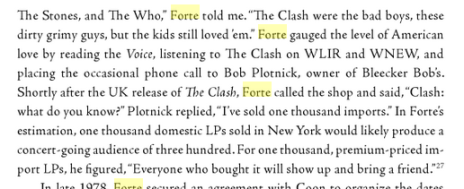
And, in part because of Forte’s hubris, which was in part inspired by Harris’ crazy-like-a-fox pragmatism, The Clash played the Palladium on their 1st three visits to New York City, and the rest, well, is one most exciting chapters in the history of rock’n’roll.


